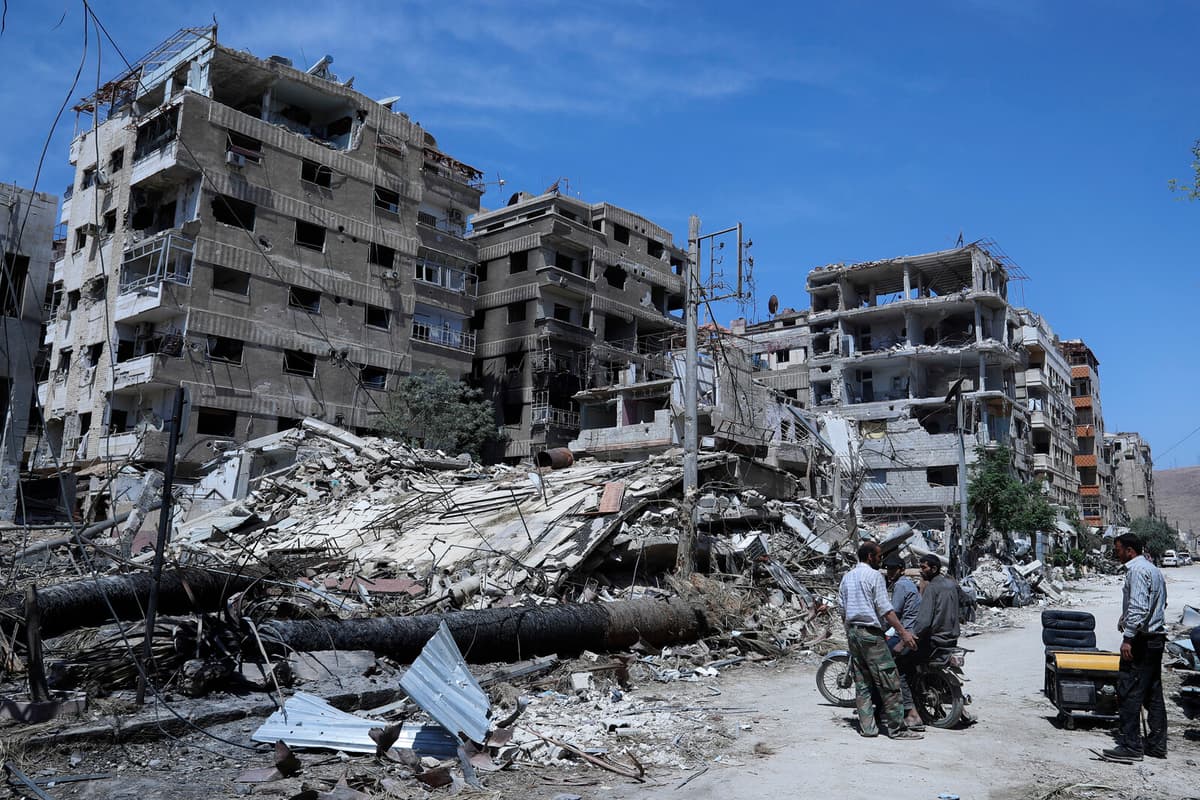All three worked at a field hospital in Douma, near Damascus, in April 2018 when a nearby building was attacked with chlorine gas and over 40 civilians were killed.
Their true testimonies would have been impossible to give before the shift in power in Syria in early December. But now that the dictator has fallen, more and more Syrians dare to speak out.
They tell AFP about how the national security service called in the healthcare workers shortly after the attack to intimidate them into silence.
Pistol on the table
When nurse Muwafaq Nisrin was called in, she was pressured by the fact that her family lived in Douma. She was told that no chemical weapons attack had occurred, despite having been on site and treated the victims.
When surgeon Mohammed al-Hanash was called in for questioning, the investigators said they knew where his family was. He chose to answer vaguely to the investigators' questions about what had happened and said he was in the operating room that day, where no wounded were brought.
Emergency and intensive care doctor Hassan Oyoun tells that a pistol was pointed at him on the table when he entered the interrogation room.
We denied the incident, he tells AFP.
Broadcast on TV
After the intimidation tactics, the healthcare workers were ordered to give their testimonies in front of a camera, and days later, their statements were broadcast on TV – edited to match the regime's claim that nothing had happened.
The Assad regime has claimed that the allegations of chemical weapons are just a play staged by Western countries.
However, the Organization for the Prohibition of Chemical Weapons (OPCW) has since established that it is highly likely that a helicopter from the Syrian air force dropped the chlorine gas – which constitutes a war crime.






